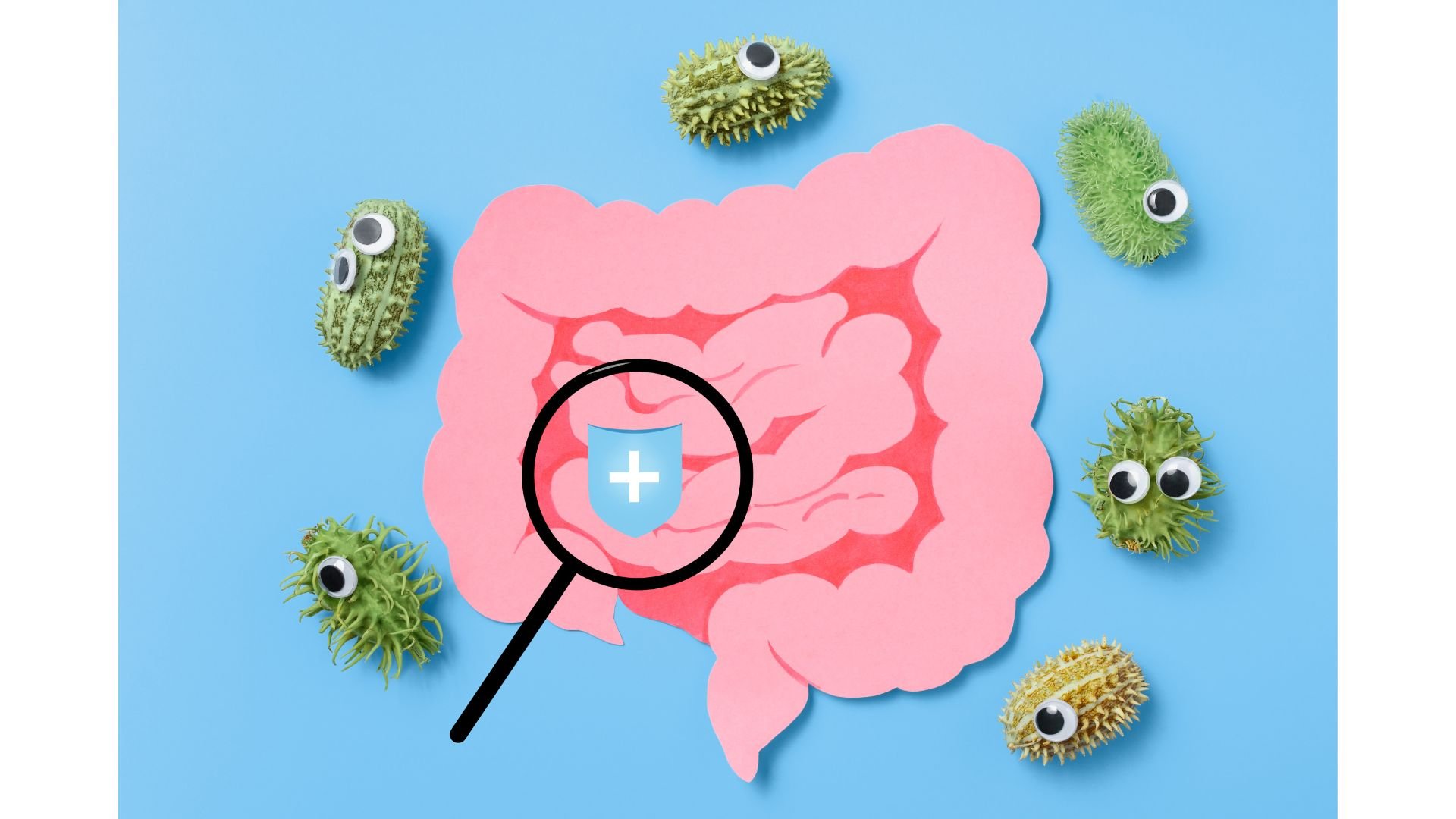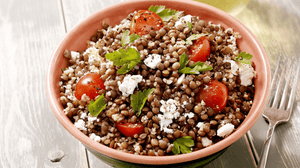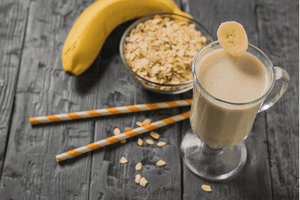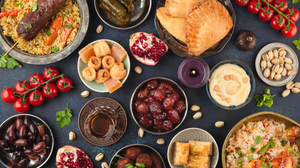
There has never been more noise about the role of gut health in health and well-being. The early years and beyond are crucial for your child’s gut health, laying the foundations for their future health. Studies show that a child’s gut microbiome (think of this as a garden with many different flowers and plants) develops rapidly during the first three years of life1. It is affected by many factors, but feeding and eating are hugely important and something you can support as a parent or caregiver. Beyond the three-year mark, supporting children with dietary habits that help maintain a healthy and thriving garden full of good bacteria has the potential to continue significantly impacting your child’s health2. More than ever, we understand that good gut health can positively impact everything from the immune system to digestion and even how the gut and brain talk to each other 3. We also know that an imbalance of bacteria in the gut (think of this as more weeds growing in the gut garden than we would like) can negatively affect a child’s short- and long-term health4.
As a parent or carer, understanding how to support your child’s health might feel like another area of parenting you need to master, but unlocking the benefits of excellent gut health doesn’t have to be hard work. Here are five evidence-based strategies that are simple and achievable, providing a solid foundation for optimising your child’s gut health.
1. Focus on fibre. Recent data reveals that children in the UK are not meeting the daily recommended fibre intake5. Fibre is essential as it feeds the beneficial bacteria in the gut. So, how can you include more in your child’s diet?
Prioritise fruits and vegetables - include fruit and vegetables across the day at each meal and snack time. This could consist of whole pieces of fruit as a snack, dried fruit on cereals or porridge, vegetables blended into pasta sauce or curries, or even offering your child vegetable sticks as a ‘starter’ before serving your child’s main meal. Remember, fresh, frozen, dried and tinned all count!
Grains and cereals - consider switching to whole grains or 50/50 versions of foods such as bread, crackers, pasta, or rice and choosing higher-fibre cereals. Did you know oats act as a prebiotic to support a healthy gut?
Beans and pulses - these are cheap and versatile ways to boost the fibre and nutrient content of meals. For example, try adding a tin of lentils to your usual Bolognese sauce, blend butter beans or white beans into soups and keep your cupboard stocked with baked beans for a quick and easy lunch option.
Nuts and seeds – a small sprinkle of seeds or a spoon of nut butter is a great way to increase the fibre content of a dish. Easy ways to incorporate nuts and seeds into your child’s diet include:
Sprinkling ground or well-chopped nuts/ seeds on porridge, cereal or even savoury dishes
Mixing nut butter with yoghurt for a nutrient-packed dip for apple slices or snacks
Ground nuts, e.g. almonds, can be added to bakes such as pancakes, muffins, or porridge slices
2. Mix mealtimes up. You may have heard that variety is the spice of life, but it’s also ideal for helping support the growth of a variety of good bacteria in your child’s gut. If we go back to the idea that your child’s gut microbiome is like a garden, ideally filled with many different flowers and plants, each of these may need slightly different nutrients to thrive. Adding as much dietary variety as possible can help ensure the garden remains well-fed6. In real life, I often discuss with parents easy options to add variety, such as;
Picking up a different type of tinned bean or pulse each week
Trying different fruits or vegetables – perhaps choosing options on offer and in season
Switching cereals picked up each week or different grains
Exploring different recipes, like the ones you can find
3. Delve into the world of fermented foods75. Fermented foods are often considered a natural ‘probiotic’, containing ‘good bacteria’ that can benefit health5. Fermented foods usually get people thinking about sauerkraut or kimchi, which may not be to the taste of younger palates! However, the excellent news is that options like hard-aged cheeses (think cheddar and parmesan), live yoghurts (including Greek and Icelandic options) and kefir (fermented milk) are also great options and may be more easily added to your weekly meal plan with some simple swaps.
4. Limited processed foods. There are noticeable differences in the gut microbiome of countries with diets higher in processed or ultra-processed foods compared to those where they are not a regular part of the daily diet8. This doesn’t have to mean cutting these foods out altogether. Some processed foods, such as baked beans and nut butter, can benefit the gut. However, being mindful of highly processed options and reducing how often these are consumed is likely to benefit your child’s gut health and overall well-being.
5. Take your child’s gut garden into your garden! This isn’t a dietary strategy unless you consider getting your kids outside to help you grow herbs or vegetables. However, research suggests that outdoor play and exposure to dirt can positively impact the gut microbiome. One study9 over ten weeks in preschool children found that outdoor nature-related activities altered their gut microbiome, and exposure to bacteria from the natural environment also benefited behavioural outcomes. Grab those wellies!
Source
Laue, H. E., Coker, M. O., & Madan, J. C. (2022). The Developing Microbiome From Birth to 3 Years: The Gut-Brain Axis and Neurodevelopmental Outcomes. Frontiers in Pediatrics, 10, 815885.
Herman, Dena & Rhoades, Nicholas & Mercado, Jasmine & Argueta, Pedro & Lopez, Ulises & Flores, Gilberto. (2019). Dietary Habits of 2- to 9-Year-Old American Children Are Associated with Gut Microbiome Composition. Journal of the Academy of Nutrition and Dietetics. 120. 10.1016/j.jand.2019.07.024.
Ratsika, A., Cruz Pereira, J. S., Lynch, C. M., Clarke, G., & Cryan, J. F. (2023). Microbiota-immune-brain interactions: A lifespan perspective. Current Opinion in Neurobiology, 78, 102652.
Madhogaria, B., Bhowmik, P., & Kundu, A. (2022). Correlation between human gut microbiome and diseases. Infectious Medicine, 1(3), 180-191. https://doi.org/10.1016/j.imj.2022.08.004
SACN Report: feeding young children aged 1-5 years.
Heiman, M. L., & Greenway, F. L. (2016). A healthy gastrointestinal microbiome is dependent on dietary diversity. Molecular Metabolism, 5(5), 317-320.
Leeuwendaal, N. K., Stanton, C., W., P., & Beresford, T. P. (2022). Fermented Foods, Health and the Gut Microbiome. Nutrients, 14(7), 1527.
Shi, Z. (2019). Gut Microbiota: An Important Link between Western Diet and Chronic Diseases. Nutrients, 11(10).
Sobko, T., Liang, S., Cheng, W. H., & Tu, H. M. (2020). Impact of outdoor nature-related activities on gut microbiota, faecal serotonin, and perceived stress in preschool children. The play&Grow randomised controlled trail. Scientific Reports, 10.

Related Articles







